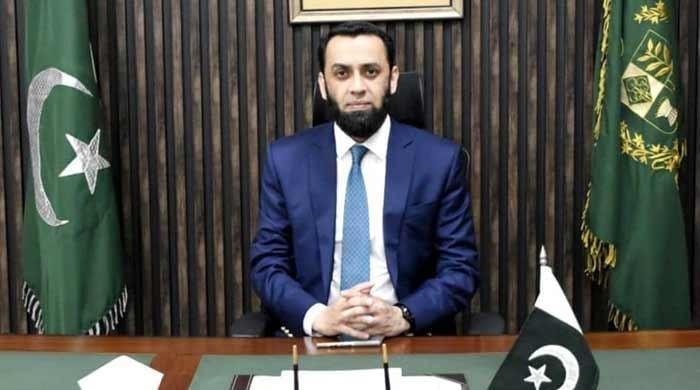- Islamabad says Kabul’s version of the talks is “false and misleading.”
- Pakistan urges action against terrorists taking refuge in Afghanistan
- The Afghan Taliban claim Islamabad rejected the deportation offer.
ISLAMABAD: Amid a fragile ceasefire between Islamabad and Kabul, Pakistan on Saturday rejected the “deliberate distortion of facts” attributed to Afghan Taliban spokesman Zabihullah Mujahid regarding the recent Istanbul talks between the two countries.
In a statement published in
“When the Afghan side claimed that those individuals were Pakistani nationals, Islamabad immediately proposed that they be handed over through the designated border crossings, in line with its long-standing position,” he said.
“Any statement to the contrary is false and misleading,” the statement added.
The clarification came after Zabihullah Mujahid told a private news channel that during the Istanbul talks, the Afghan side had offered to deport people considered security threats by Islamabad, a proposal Pakistan reportedly rejected.
He alleged that Pakistan had instead asked Afghanistan to restrict such people inside Afghanistan instead of deporting them.
Mujahid further asserted that Afghanistan’s policy prohibits migrants from carrying weapons and said Kabul would act if Pakistan provided credible evidence of any threat.
He also alleged that Pakistan’s recent actions appeared to be aimed at creating the conditions for a possible US return to Bagram air base.
Pakistan and the Afghan Taliban regime agreed to maintain the ceasefire after multiple rounds of talks in Istanbul failed without progress.
The talks collapsed when the Taliban refused to provide verifiable assurances that groups like the TTP would not use Afghan territory to launch attacks against Pakistan.
Pakistan had restarted talks at the request of mediators Turkey and Qatar to give peace another chance, while repeatedly urging Kabul to act against militants using its territory as a safe haven.
Islamabad-Kabul tensions
Pakistan has been grappling with a rise in terrorist incidents, particularly in Khyber Pakhtunkhwa (KP) and Balochistan, since the Afghan Taliban regime took power in 2021.
The government in Islamabad has repeatedly urged the Taliban regime to rein in terrorist groups responsible for countless attacks in Pakistan.
However, the Taliban regime remained largely indifferent to Pakistan’s demands and provided shelter to multiple terrorist groups that attacked security forces and civilians.
Instead of addressing Pakistan’s concerns about cross-border terrorism, the Taliban regime resorted to unprovoked firing along the border on October 12.
The Pakistani Armed Forces quickly retaliated and killed more than 200 Taliban fighters and affiliated militants; However, as many as 23 Pakistani soldiers were martyred during the border clashes.
Security forces also carried out attacks inside Afghanistan, including in Kabul, destroying terrorist hideouts in the country.
Hostilities between the two nations’ forces ceased after Pakistan accepted the Taliban regime’s request for a temporary ceasefire on October 17.
Delegations from the two countries later met for Qatar-brokered talks in Doha, where they agreed to a ceasefire agreement.
Turkiye then hosted the second round of talks in Istanbul, which began on October 25 and continued until October 31.
The two sides would meet again in the next round scheduled for November 6.




